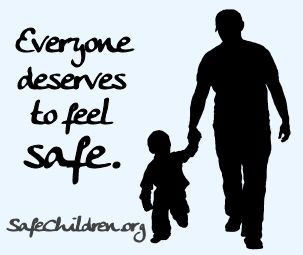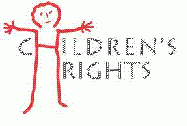Punishment
Parenting Without Punishment: A Humanist Perspective, Part 3
Here's concrete, compelling evidence that corporal punishment doesn't work.
Posted July 3, 2015

How—and How Not—to Discipline Your Children
Resources for Further Reading
Tragically, since recorded history corporal punishment has been the “default” system for disciplining children. In the past century, however, evidence demonstrating its ineffectiveness has mounted to the degree that it can no longer be justified—whether ethically or pragmatically (as I expand on in part 1 of this post). It’s therefore a sad state of affairs that it's still common in this country today.
The list of reading resources below makes what I view as a definitive case for parents to exclude from consideration disciplining their children physically. There are numerous alternatives for dealing with a child’s misconduct that have been shown to be more effective and humane—many of which I’ve already outlined in part 2. And you’ll find additional suggestions in this bibliography for teaching your children what they need to learn to behave more appropriately (or pro-socially).
Moreover, if you’re not yet convinced that it’s safe to completely eliminate the use of physical punishment in disciplining your child, you’ll discover here many critical studies that compellingly illustrate why—as a way of educating children about their misconduct to best prompt them to change it—corporal punishment must, over time, become a thing of the past. (And certainly not anything we’d have reason to be nostalgic about either.)
So, even if you don’t actually peruse any of the material validating my own strongly held “anti-spank” bias, simply reviewing this substantial list should convince you that the negative effects of corporal punishment are sufficient to persuade you to eliminate altogether the use of such tactics with your own children.
Here’s my considerable (but hardly exhaustive) bibliography:
American Academy of Child and Adolescent Psychiatry (2012). Policy statement on corporal punisment. Retrieved from http://www.aacap.org/cs/root/policy_statements/policy_statement on corporal punishment
American Academy of Pediatrics, Committee on Psychosocial Aspects of Child and Family Health (1998). Guidance for effective discipline, Pediatrics, 102 (2 Pt 1), 723–728, 101 (2 Pt 1).
American Humane Association (2009). Child protection position statements. Retrieved from http://www.americanhumane.org/assets/pdfs/children/child-welfare-migrat…
Berlin, L. J., Ispa, J. M., Fine, M. A., Malone, P. S., Brooks-Gunn, J., Brady-Smith, C., et al. (2009). Correlates and consequences of spanking and verbal punishment for low-income White, African American, and Mexican American toddlers. Child Development, 80, 1403-1420.
Block, N. A. & Gomez, M. Y. (2011). This hurts me more than it hurts you: In words and pictures, children share how spanking hurts and what to do instead. [Self-published.]
Cactelloe, M. S. (2012). How spanking harms the brain. Retrieved from https://www.psychologytoday.com/blog/the-me-in-we/201202/how-spanking-h…
Child Welfare Information Gateway (2013). What is child abuse and neglect? Recognizing the signs and symptoms. Washington, DC: U.S. Department of Health and Human Services, Children’s Bureau. Retrieved from https://www.childwelfare.gov/pubs/factsheets/whatiscan.cfm

Committee on the Rights of the Child (2006). General comment No. 8 (2006): The right of the child to protection from corporal punishment and or cruel or degrading forms of punishment (Articles 1, 28 (2), and 37, inter alia), 42nd Sess., U.N. Doc. CRC/C/GC/8. Retrieved from http://www.ohchr.org/english/bodies/crc/docs/co/CRC.C.GC.8.pdf
Cook, E. & Kopko, K. (2014). Why Spanking Should Be Discouraged. Retrieved from http://www.human.cornell.edu/pam/outreach/parenting/research/upload/Spa…
Deater-Deckard, K. & Dodge, K. A. (1997). Externalizing behavior problems and discipline revisited: Nonlinear effects and variation by culture, context, and gender. Psychological Inquiry, 8, 161–175. doi:10.1207/s15327965pli0803_1
Dobbs, T. A., Smith, A. B., & Taylor, N. J. (2006). “No, we don’t get a say, children just suffer the consequences”: Children talk about family discipline. International Journal of Children’s Rights, 14, 137–156.
Durrant, J., Trocme, N., Fallon, B., Milne, C., Black, T., & Knoke, D. (2006). Punitive violence against children in Canada. CECW Infor mation Sheet #41E. Toronto, Canada: Faculty of Social Work, University of Toronto.
Eron, L. D., Walder, L. O., & Lefkowitz, M. M. (1971). Learning of aggression in children. Boston: Little, Brown.
Europe-Wide Ban on Corporal Punishment of Children, Recommendation 1666. (2004, June 23). Parliamentary Assembly, Council of Europe (21st Sitting). Retrieved from g
General Assembly of the Presbyterian Church, USA. (2012, July 6). General assembly adopts wide range of social justice issues. Retrieved from http://www.pcusa.org/news/2012/7/6/general-assembly-adoptswide-range-so…
Gershoff, E. T. (2002). Corporal punishment by parents and associated child behaviors and experiences: A meta-analytic and theoretical review. Psychological Bulletin, 128, 539–579. doi:10.1037/0033-2909.128.4.539
Gershoff, E. T. (n.d.). Research evidence of the negative child outcomes linked with corporal punishment. http://www.endhittingusa.org/docs/GershoffPlenaryTalk.pdf
Gershoff, E. T. (2008). Report on physical punishment in the United States: What research tells us about its effects on children. Columbus, OH: Center for effective discipline.
Gershoff, E. T. (2013). Spanking and child development: We know enough now to stop hitting our children. Child Development Perspectives, pp. 1-5. Retrieved from http://paperzz.com/doc/397326/spanking-and-child-development--we-know-enough-now-to-stop
Gershoff, E. T., Grogan-Kaylor, A., Lansford, J. E., Chang, L., Zelli, A., Deater-Deckard, K., et al. (2010). Parent discipline practices in an international sample: Associations with child behaviors and moderation by perceived normativeness. Child Development, 81, 487–502. doi:10.1111/j.1467-8624.2009.01409.x
Gershoff, E. T., Lansford, J. E., Sexton, H. R., Davis-Kean, P. E., & Sameroff, A. J. (2012). Longitudinal links between spanking and children’s externalizing behaviors in a national sample of White, Black, Hispanic, and Asian American families. Child Development, 83, 838-843.
Global Initiative to End All Corporal Punishment of Children. (2013). States with full abolition. London: Author. Retrieved from http://www.endcorporalpunishment.org
Grusec, J. E., & Goodnow, J. J. (1994). Impact of parental discipline methods on the child’s internalization of values: A reconceptualization of current points of view. Developmental Psychology, 30, 4–19.
Hineline, P. N., & Rosales-Ruiz, J. (2012). Behavior in relation to aversive events: Punishment and negative reinforcement. In G. J. Madden, W. V. Dube, T. Hackenberg, G. Hanley, & K. A. Lattal (Eds.), APA handbook of behavior analysis (pp. 483–512). Washington, DC: American Psychological Association.
Hoffman, M. L. (1983). Affective and cognitive processes in moral internalization. In E. T. Higgins, D. N. Ruble, & W. W. Hartup (Eds.), Social cognition and social development (pp. 236–274). New York: Cambridge University Press.
Holden, G. W., Coleman, S. W., & Schmidt, K. L. (1995). Why 3-year old children get spanked: Parent and child determinants as reported by college-educated mothers. Merrill-Palmer Quarterly, 41, 431–452.
Holinger, P. C. (2009, Aug. 21). Infant and Child Development and the Problem of Physical (Corporal) Punishment. Retrieved from https://www.psychologytoday.com/blog/great-kids-great-parents/200908/in…
Inter-American Commission on Human Rights, Rapporteurship on the Rights of the Child, Organization of American States (2009, Aug. 5). Report on corporal punishment and human rights of children and adolescents (OEA/Ser.L/V/II.135). Retrieved from http://www.cidh.oas.org/Ninez/CastigoCorporal2009/CastigoCorporal.TOC.htm
Lee, S. J., Altschul, I., & Gershoff, E. T. (2013). Does warmth moderate longitudinal associations between maternal spanking and child aggression in early childhood? Developmental Psychology, 49, 2017-2028. doi:10.1037/a0031630
Markham, Laura (2014). 10 alternatives to “consequences.” Retrieved from https://www.psychologytoday.com/blog/peaceful-parents-happy-kids/201407/10-alternatives-consequences
Markham, Laura (2015). 10 secrets every parent needs to know about saying no. Retrieved from https://www.psychologytoday.com/blog/peaceful-parents-happy-kids/201505/10-secrets-every-parent-needs-know-about-saying-no
Markham, Laura (2015). Your 10-step plan to stop yelling. Retrieved from https://www.psychologytoday.com/blog/peaceful-parents-happy-kids/201506/your-10-step-plan-stop-yelling
Markham, Laura (2015). 14 Tips for Parenting in Public. Retrieved from https://www.psychologytoday.com/blog/peaceful-parents-happy-kids/201506/14-tips-parenting-in-public
National Association of Pediatric Nurse Practitioners. (2011). NAPNAP position statement on corporal punishment. Journal of Pediatric Health Care, 25, e31–e32. Retrieved from http://download.journals. elsevierhealth.com/pdfs/journals/0891-5245/ PIIS0891524511002288.pdf
National Association of Social Workers (2012). Social work speaks (9th ed.). NASW policy statements, 2012–2014. Washington, DC: Author.

Narvaez, Darcia (2013). Research on spanking: It’s bad for all kids. Retrieved from https://www.psychologytoday.com/blog/moral-landscapes/201309/research-spanking-it-s-bad-all-kids
Park, Alice (2010). Spanking kids leads to aggressive behavior. Time, Apr. 12.
Regalado, M., Sareen, H., Inkelas, M., Wissow, L. S., & Halfon, N. (2004). Parents’ discipline of young children: Results from the National Survey of Early Childhood Health. Pediatrics, 113, 1952–1958.
Reischer, Erica (2015). 10 things great parents do. Retrieved from https://www.psychologytoday.com/blog/what-great-parents-do/201501/10-things-great-parents-do
Roberts, M. W. & Powers, S. W. (1990). Adjusting chair timeout enforcement procedures for oppositional children. Behavior Therapy, 21, 257–271.
Rochman, B. (2012). Why spanking doesn’t work. Time, Feb. 06.
Scott, G. R. (2005). The history of corporal punishment. London: Routledge.
Smith, B. L. (2012).The case against spanking: Physical discipline is slowly declining as some studies reveal lasting harms for children. Monitor on Psychology, 43, 60. Retrieved from http://www.apa.org/monitor/2012/04/spanking.aspx
Strassberg, Z., Dodge, K. A., Petit, G. S., & Bates, J. E. (1994). Spanking in the home and children’s subsequent aggression toward kindergarten peers. Developmental Psychopathology, 6, 445-461.
Straus, M. (1980). Behind closed doors: Violence in the American family. Doubleday, reprinted with new introduction, Transaction, 2006.
Straus, M. (1988). Intimate violence: The causes and consequences of abuse in the American family. New York: Simon and Schuster.
Straus, M. (2005). Corporal punishment of children in theoretical perspective. New Haven: Yale University Press.
Straus, M. A. & Douglas & Gelles, R. J. (1995). Physical violence in American families: Risk factors and adaptations to violence in 8,145 Families. Somerset, NJ: Transaction Publishers.
Straus, M., Sugarman, D. B., & Giles-Sims, J. (1997). Spanking by parents and subsequent antisocial behavior of children. Archives of Pediatric and Adolescent Medicine, 151, 761-767.
Straus, M. & Donnelly, D. A. (2001). Beating the devil out of them: Corporal punishment in American families and its effects on children (2nd ed.). Somerset, NJ: Transaction Publishers.
Straus, M ., Douglas, E. M., & Medeiros, R. A. (2013). The primordial violence: Spanking children, psychological development, violence, and crime. New York: Routledge.
Turner, E. A. (2014, Sep. 20). Discipline tips to avoid spanking: Hitting doesn’t help. Retrieved from https://www.psychologytoday.com/blog/the-race-good-health/201409/discipline-tips-avoid-spanking-hitting-doesn-t-help
Uche, Ugo. (2013, Oct. 23). Is Yelling Detrimental to Children? Retrieved from https://www.psychologytoday.com/blog/promoting-empathy-your-teen/201310…
UNICEF (2010). Child disciplinary practices at home: Evidence from a range of low- and middle-income countries. Retrieved from http://www.childinfo.org/files/report_Disipl_FIN.pdf
United Methodist Church. (2008). Discipline children without corporal punishment (Social Principles, ¶ 162C).The Book of Resolutions of the United Methodist Church. Retrieved from http://www.umc.org/site/apps/nlnet/content2.aspx?c=lwL4KnN1LtH&b= 4951419&ct=6480593
Note 1: Earlier, part 1 of this post focused on the many reasons that physically disciplining children is ineffective—and ethically unjustifiable. Part 2 offered a variety of alternative methods for dealing with children’s misbehaviors. In case you missed these first two parts, I’m providing links for them.
Note 2: For anyone who might be interested in reviewing other articles I’ve written for Psychology Today online—on a whole host of subjects—click here.
Note 3: If you know of individuals whom you believe could learn something useful from these posts, kindly consider sending them the links.
© 2015 Leon F. Seltzer, Ph.D. All Rights Reserved.
---To be notified whenever I post something new, I invite readers to join me on Facebook—as well as on Twitter where, additionally, you can follow my sometimes unorthodox psychological and philosophical musings.




